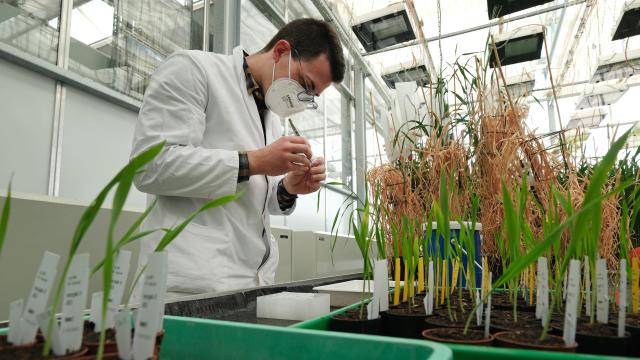The leader of an illegal logging operation responsible for a wildfire that burned more than 3,300 acres worth of Washington state wilderness was sentenced to 20 months in prison this week thanks in large part to DNA from a tree.
According to a statement released by the U.S. Department of Justice, a research geneticist for the USDA Forest Service named Richard Cronn testified at the trial claiming wood illegally sold by the loggers had the same DNA as the remains of the trees found in the poached region. Researchers reportedly took samples from more than 230 trees and used that to create a tree DNA database to compare the wood to. The genetic match was extremely precise, the DOJ noted, with the probability of a match being coincidental around one in one undecillion.
Though human DNA has famously been used in criminal cases for decades, this marks the first time a similar process has been used for plants or trees in a federal case. Plant DNA has, however, reportedly been used in some state cases.
The illegal logging operation took place in Olympic National Forest near Elk Lake between April and August of 2018, according to the Justice Department. The loggers, led by 39-year-old Justin Andrew Wilke, removed “highly prized” maple trees and used forged permits to sell them, authorities said. In one of the cases, Wilke’s crew reportedly tried to use insecticide and gasoline to burn a wasp nest near the base of one of the maple trees. Unable to put the flame, the burning wasp nest led to the massive fire that cost nearly $US4.2 (A$5.76) million to contain, the DOJ notes.
In addition to the prison time, Wilke will have to fork over the proceeds he made from the logging operation and pay restitution to the U.S. Forest service. Another member of the logging crew was sentenced to 30 months in prison last year after pleading guilty to theft of public property and setting the timber afire.
Somewhat counterintuitively, tree DNA databases are actually more difficult to make and maintain than human ones due to the sheer diversity of trees species.
In an interview with the New York Times, Cronn, the researchers who created the tree DNA database, said the wide species diversity means new individual databases need to be crafted for every tree species being analysed. That’s a tall task considering Washington State is home to around 25 different native tree species, according to the Washington Forest Protection Association. Worldwide, the number of tree species could be as high as 60,000, according to research published in the Journal of Sustainable Forestry. In other words, don’t expect to see a comprehensive 23andMe for trees anytime soon.
